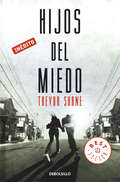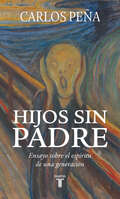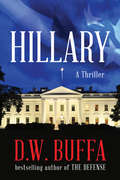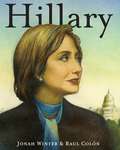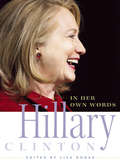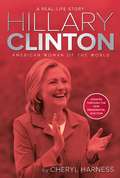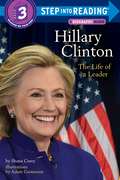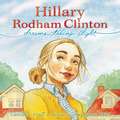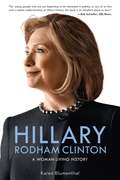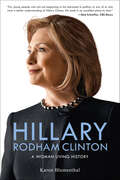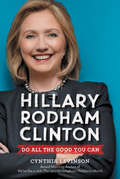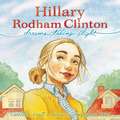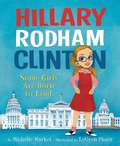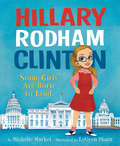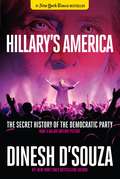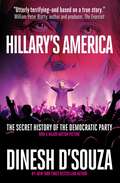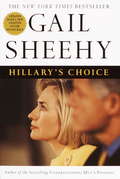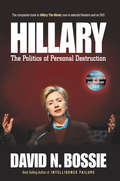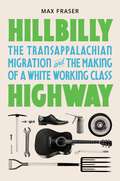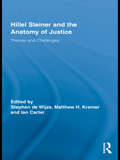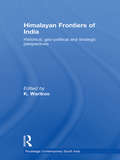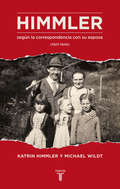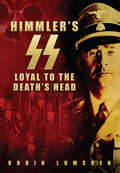- Table View
- List View
Hijos de la sombra
by Graciela RamosTres jóvenes de un pequeño pueblo comienzan a ser abusados por el nuevo cura del lugar, hecho que los transformó para siempre. El silencio ensombreció a los tres amigos, que debieron empezar a reconstruirse. En la década de los 70, Agustín, Diego y Marcos llevaban la vida de cualquier chico en un pueblo pequeño y perdido de la Argentina. Entrando en la adolescencia, esa amistad era todo lo que tenían: refugio, contención, apoyo, compañerismo. Pero la llegada de un nuevo cura los transformó para siempre: de manera abierta, empezó a abusar de ellos sistemáticamente. El silencio, por acción o por omisión, fue ensombreciendo a los tres amigos, que nunca más fueron los mismos. Aunque, a veces, es posible reconstruirse desde los escombros. Con esta novela, Graciela Ramos se aleja de las historias románticas y se sumerge en una trama donde la época juega un rol fundamental. Porque no solo los protagonistas fueron arrastrados hacia la oscuridad más profunda, sino que también un país atravesaba una de las épocas más negras de su historia. Y así, de alguna manera, todos somos hijos de la sombra.
Hijos del miedo
by Trevor ShaneRegla número 1: Prohibido matar a transeúntes inocentes. Regla número 2: Prohibido matar a nadie menor de dieciocho años. Regla número 3: Prohibido tener hijos hasta cumplir dieciocho años. Rompe las reglas y te convertirás en objetivo. En un mundo terriblemente parecido al nuestro, dos bandos se enfrentan en una guerra secreta. Joe participa en ella como un soldado perfecto cuya misión es ejecutar los objetivos que le indican sus superiores, sin cuestionarse unas reglas que no acaba de comprender. De niño le explicaron que el mundo estaba dividido en dos bandos bien diferenciados: el bueno y el malo, pero cuando conoce a Maria esa frontera comienza a desdibujarse. Sus firmes y sangrientas convicciones se desvanecen al tiempo que se impone una la únicay terrible y única verdad: solo hay una cosa más peligrosa que luchar en una guerra: abandonarla. Reseña: «El trabajo de Shane es impresionante. Sabe, sin lugar a dudas, cómo encadenar escenas de acción y crea una tensión casi insoportable. Si lo que buscas es una lectura apasionante y vertiginosa Hijos del miedo es tu mejor opción.»The Saturday Evening Post
Hijos sin padre: Ensayo sobre el espíritu de una generación
by Carlos PeñaUna contundente crítica sobre los factores políticos y sociales que Chile todavía no resuelve. ¿Qué ha ocurrido (en términos culturales, políticos y sociales) en nuestro país durante los últimos treinta años? El proceso de modernización capitalista que Chile emprendió finalizada la dictadura ha sido exitoso en términos de mejoras de las condiciones materiales de la existencia, pero al mismo tiempo es vista como una pérdida de arraigo de las formas de vida más tradicionales, aquellas que responden al tipo de "comunidad". Cohesión social, seguridad, equidad, una nueva cultura del trabajo, mejor democracia y menos policy making, confianza y anomía. Son estos conceptos los que articulan el pormenorizado análisis que Carlos Peña, el intelectual más discutido y leído actualmente en Chile, identifica como las causas del malestar y explica los cambios que ha tenido el país desde el malestar de 2019 al fracaso del plebiscito de 2022. Una advertencia a la clase política y empresarial para que oriente de mejor modo los esfuerzos que supone mejorar las condiciones de vida de la ciudadanía.
Hillary
by D. W. Buffa"A Dan Brown read-alike tailor-made for an election year." -BooklistA President is murdered.A First Lady demands answers.And a young Senator will uncover a conspiracy that threatens the world as we know it.When Robert Constable, President of the United States, dies in bed with a woman in a New York hotel room, the public is told that he died suddenly and peacefully of natural causes--and alone. The truth, however, is anything but that. The President's wife, Hillary Constable asks young senator Bobby Hart, who serves on the Senate Intelligence Committee, to find out who had her husband murdered and why.As Hart begins to learn more about the President's shady dealings, he uncovers a massive global criminal and financial conspiracy, headed by a secret underground organization nicknamed The Four Sisters. Yet the closer Hart gets to the truth, the more shocking secrets are revealed that could threaten his life, American Democracy, and the future of the nation.A riveting a timely political thriller from acclaimed, bestselling Edgar nominee D.W. Buffa, HILLARY is a novel that will appeal to fans of David Baldacci, Brad Meltzer, Brad Thor, and Vince Flynn.
Hillary
by Jonah Winter Raul ColonIn this beautiful and empowering picture-book biography of presidential candidate Hillary Rodham Clinton, New York Times bestselling author Winter and award-winning illustrator Colón illuminate her distinguished life and career. This stunning project follows Clinton from her early years as an outspoken student at Wellesley College and Yale Law School to marrying Bill Clinton and raising daughter Chelsea, to becoming First Lady of the United States and then a U.S. Senator and Secretary of State. Here is the inspiring story of the woman who may soon change the world--into a place where a girl can dream of growing up to be president.
Hillary Clinton in Her Own Words
by Lisa RogakLisa Rogak, author of the New York Times bestseller Barack Obama in His Own Words, now brings readers Hillary Clinton in Her Own Words-quotations from the former First Lady, Senator from New York, and Secretary of State that go beyond politics. Topics range from leadership to life in the White House, and include her opinions on family, aging, public scrutiny, religion, motherhood, and marriage:"If I want to knock a story off the front page, I just change my hairstyle." -June 4, 1995"I have a million ideas. The country can't afford them all."-October 11, 2007"We will never build enough prisons to end our crime problem." -February 7, 1996"Being gay is not a western invention. It is a human reality."-December 6, 2011Spanning more than two decades, this provocative collection is a must for all Hillary fans.
Hillary Clinton in the News: Gender and Authenticity in American Politics
by Shawn J. Parry-GilesThe charge of inauthenticity has trailed Hillary Clinton from the moment she entered the national spotlight and stood in front of television cameras. Hillary Clinton in the News: Gender and Authenticity in American Politics shows how the U.S. news media created their own news frames of Clinton's political authenticity and image-making, from her participation in Bill Clinton's 1992 presidential campaign through her own 2008 presidential bid. Using theories of nationalism, feminism, and authenticity, Parry-Giles tracks the evolving ways the major networks and cable news programs framed Clinton's image as she assumed roles ranging from surrogate campaigner, legislative advocate, and financial investor to international emissary, scorned wife, and political candidate. This study magnifies how the coverage that preceded Clinton's entry into electoral politics was grounded in her earliest presence in the national spotlight, and in long-standing nationalistic beliefs about the boundaries of authentic womanhood and first lady comportment. Once Clinton dared to cross those gender boundaries and vie for office in her own right, the news exuded a rhetoric of sexual violence. These portrayals served as a warning to other women who dared to enter the political arena and violate the protocols of authentic womanhood.
Hillary Clinton: American Woman of the World
by Cheryl HarnessA biography of 2016 Presidential hopeful, US Senator, US Secretary of State, and former first lady Hillary Clinton.A Real-Life Story biography of 2016 presidential hopeful, Hillary Rodham Clinton. With dreams of becoming an astronaut at a young age, Hillary Clinton has always reached for the stars, politically, personally, and professionally. She's led a life devoted to public service, championing the rights of children, women, the disenfranchised. Wellesley, Yale, First Lady of Arkansas, Law firm partner, First Lady of the United States, New York State Senator, Secretary of State...her list of accomplishments are nothing short of extraordinary; her life story as told by acclaimed writer Cheryl Harness, is powerfully inspiring.
Hillary Clinton: The Life Of A Leader (Step into Reading)
by Shana CoreyFollow Hillary Clinton&’s inspiring life of service in this Step 3 Biography Reader! After volunteering as a young child, she became a leader in school and college, championed women&’s and children&’s causes as a young lawyer and wife of a politician, and finally became a politician herself. She has been our First Lady, a U.S. senator, the secretary of state, and the first woman candidate nominated for President of the United States by the Democratic Party. Hillary Clinton has achieved so many &“firsts&” in her life, and she remains a "citizen activist" following the 2016 election. Step 3 Readers feature engaging characters in easy-to-follow plots about popular topics—for children who are ready to read on their own.
Hillary Rodham Clinton
by Kathleen Krull Amy June BatesWhen Hillary was young, she wanted to be an astronaut, to soar as high as the stars above. She kept reaching up and up as she grew. There were people who told her no. But she didn't listen to them. There were people who didn't think she could do it. But she believed in herself. And Hillary has been making history ever since. This is the inspiring story of a girl with dreams as big as the open sky.
Hillary Rodham Clinton: A Woman Living History
by Karen BlumenthalIn Hillary Rodham Clinton: A Woman Living History, critically acclaimed author Karen Blumenthal gives us an intimate and unflinching look at the public and personal life of Hillary Rodham Clinton. Illustrated throughout with black-and-white photographs and political cartoons, this is a must-have biography about a woman who has fascinated--and divided--the public, who continues to push boundaries, and who isn’t afraid to reach for one more goal.
Hillary Rodham Clinton: A Woman Living History
by Karen BlumenthalAs a young girl, Hillary Diane Rodham’s parents told her she could be whatever she wanted--as long as she was willing to work for it. Hillary took those words and ran. In a life on the front row of modern American history, she has always stood out--whether she was a teen campaigning for the 1964 Republican presidential candidate, winning recognition in Life magazine for her pointed words as the first student commencement speaker at Wellesley College, or working on the Richard Nixon impeachment case as a newly minted lawyer.For all her accomplishments, scrutiny and scandal have followed this complex woman since she stepped into the public eye—from her role as First Lady of Arkansas to First Lady of the United States to becoming the first female U.S. senator from New York to U.S. secretary of state. Despite intense criticism, Hillary has remained committed to public service and dedicated to health-care reform, children's issues, and women’s rights. Now, she aspires to a bigger role: her nation's first woman president.In Hillary Rodham Clinton: A Woman Living History, critically acclaimed author Karen Blumenthal gives us an intimate and unflinching look at the public and personal life of Hillary Rodham Clinton. Illustrated throughout with black-and-white photographs and political cartoons, this is a must-have biography about a woman who has fascinated--and divided--the public, who continues to push boundaries, and who isn’t afraid to reach for one more goal."After decades in the public eye, Hillary Rodham Clinton is still an enigma, as Blumenthal (Tommy: The Gun That Changed America) emphasizes in this compelling portrait of the former U.S. Senator and Secretary of State’s journey from budding activist to presidential aspirant." —Publishers Weekly, starred review
Hillary Rodham Clinton: Do All the Good You Can
by Cynthia LevinsonAn inspiring and meticulously researched middle grade biography of Hillary Rodham Clinton--First Lady, senator, secretary of state, and Democratic candidate for president in 2016. <P><P>Hillary Rodham Clinton is a true leader. Growing up in Park Ridge, Illinois, Hillary was inspired by the philosophy of John Wesley, who urged his followers to "do all the good you can." Rising to prominence in 1992 as the First Lady of the United States, Hillary captured the world's attention with her bold ideas and political forcefulness. <P><P>From her time at Wellesley to her life at the White House and beyond, Hillary has been at the forefront of huge change--and despite setbacks and political scandals, she has worked for good in the world. <P><P>Acclaimed author Cynthia Levinson creates a compelling and personal portrait of Hillary's historic journey from her childhood to her service as secretary of state and beyond. Includes a timeline of Hillary Rodham Clinton's life and an eight-page photo insert.
Hillary Rodham Clinton: Dreams Taking Flight
by Kathleen KrullThis very first picture book about Senator Hillary Clinton chronicles her life from her childhood in Chicago to serving as the nation's First Lady to her own campaign for President of the United States.
Hillary Rodham Clinton: Some Girls Are Born To Lead
by Michelle Markel LeUyen PhamIn the spirit of Barack Obama: Son of Promise, Child of Hope and Amelia and Eleanor Go for a Ride comes an inspiring portrait of Hillary Rodham Clinton, the first female presidential nominee in United States history: a girl who fought to make a difference—and paved the way for women everywhere—from Michelle Markel and LeUyen Pham. <P><P> In the 1950s, it was a man’s world. Girls weren’t supposed to act smart, tough, or ambitious. Even though, deep inside, they may have felt that way. And then along came Hillary. Brave, brilliant, and unstoppable, she was out to change the world. <P><P> They said a woman couldn’t be a mother and a lawyer. Hillary was both. They said a woman shouldn’t be too strong or too smart. Hillary was fearlessly herself. <P><P> It didn’t matter what people said—she was born to lead. <P><P> With illustrations packed full of historical figures and details, this gorgeous and informative picture book biography is perfect for every budding leader. Includes a timeline, artist’s note, and bibliography.
Hillary Rodham Clinton: Some Girls Are Born to Lead
by Michelle MarkelIn the spirit of Barack Obama: Son of Promise, Child of Hope and Amelia and Eleanor Go for a Ride comes an inspiring portrait of Hillary Rodham Clinton, the first female presidential nominee in United States history: a girl who fought to make a difference—and paved the way for women everywhere—from Michelle Markel and LeUyen Pham. This nonfiction picture book is an excellent choice to share during homeschooling, in particular for children ages 4 to 6. It’s a fun way to learn to read and as a supplement for activity books for children.In the 1950s, it was a man’s world. Girls weren’t supposed to act smart, tough, or ambitious. Even though, deep inside, they may have felt that way. And then along came Hillary. Brave, brilliant, and unstoppable, she was out to change the world.They said a woman couldn’t be a mother and a lawyer. Hillary was both. They said a woman shouldn’t be too strong or too smart. Hillary was fearlessly herself.It didn’t matter what people said—she was born to lead.With illustrations packed full of historical figures and details, this gorgeous and informative picture book biography is perfect for every budding leader. Includes a timeline, artist’s note, and bibliography.
Hillary's America: The Secret History Of The Democratic Party
by Dinesh D'SouzaDinesh D’Souza, author of the #1 New York Times bestseller America: Imagine a World Without Her, has a warning: We are on the brink of losing our country forever. After eight years of Obama, four years—or possibly eight years—of Hillary Clinton as president of the United States would so utterly transform America as to make it unrecognizable. <P><P> No more will America be a land of opportunity. Instead, it will be a land of rapacious crony capitalism, run solely for the benefit of friends of the Obamas and the Clintons and the Democratic Party. It will, in fact, be the fulfillment of a dream the Democratic Party has had from the beginning…a dream of stealing America for the politically favored few.<P> In Hillary's America, D’Souza reveals the sordid truth about Hillary and the secret history of the Democratic Party, including: how Democrats transitioned from pro-slavery to pro-enslavement; the long-standing Democratic political war against women; how Hillary Clinton’s political mentor was, literally, a cold-blooded gangster; how the Clintons and other Democrats see foreign policy not in terms of national interest, but in terms of personal profit; how Democratically controlled cities have turned into hotbeds of crime and corruption; and much, much more.<P> Not only is Hillary Clinton a liar and a criminal—who would have been indicted for mishandling classified information on her secret email sever had the Democratic Party not closed ranks around her—she is also the culmination of her party's deliberate and stunning plot to redistribute wealth and political power to the liberal elite.<P> Find out how Hillary and Bill used the Clinton Foundation to ruthlessly sell State Department influence to the highest foreign bidder. Find out what shady backroom Democrat dealers taught Hillary Clinton her particular brand of corrupt party politics. And most importantly, find out whether America can stop her from destroying the country once and for all. <P><b>A New York Times Bestseller</b>
Hillary's America: The Secret History of the Democratic Party
by Dinesh D'SouzaDinesh D’Souza has a warning: We are on the brink of losing our country forever. After eight years of Obama, four years-or possibly eight years-of Hillary Clinton as president of the United States would so utterly transform America as to make it unrecognizable.No more will America be a land of opportunity. Instead, it will be a land of rapacious crony capitalism, run solely for the benefit of friends of the Obamas and the Clintons and the Democratic Party. It will, in fact, be the fulfillment of a dream the Democratic Party has had from the beginning...a dream of stealing America for the politically favored few. <p><p> In Hillary's America, D’Souza reveals the sordid truth about Hillary and the secret history of the Democratic Party, including: how Democrats transitioned from pro-slavery to pro-enslavement; the long-standing Democratic political war against women; how Hillary Clinton’s political mentor was, literally, a cold-blooded gangster; how the Clintons and other Democrats see foreign policy not in terms of national interest, but in terms of personal profit; how Democratically controlled cities have turned into hotbeds of crime and corruption; and much, much more. <p> Not only is Hillary Clinton a liar and a criminal-who would have been indicted for mishandling classified information on her secret email sever had the Democratic Party not closed ranks around her-she is also the culmination of her party's deliberate and stunning plot to redistribute wealth and political power to the liberal elite. <p> Find out how Hillary and Bill used the Clinton Foundation to ruthlessly sell State Department influence to the highest foreign bidder. Find out what shady backroom Democrat dealers taught Hillary Clinton her particular brand of corrupt party politics. And most importantly, find out whether America can stop her from destroying the country once and for all.
Hillary's Choice
by Gail SheehyA fascinating portrait of the most intriguing lady in America - The First Lady - by the bestselling author who has revealed more about her than any other. In a real sense,Hillary's Choiceis a love story - one whose rocky moments, rather than remaining private, have been publicized beyond any imagining. What is the real story of the marriage of Bill and Hillary Rodham Clinton? Gail Sheehy began to discover it seven years ago, when she wrote the first revealing piece about Hillary. Since then, she has followed and recorded this relationship as only she can. Hillary's Choicetakes the Clintons from the moment their eyes met in law school through the humiliation of the Lewinsky affair and the drama of the impeachment battle to reveal the power shifts, the genuine passion, and the ultimate price Hillary has paid for her love and her ambition. Combined with in-depth reporting, Gail Sheehy has brought an acute understanding to the private dynamic of a very public an political partnership.
Hillary: The Politics of Personal Destruction
by David BossieIt's not a stretch to say that more has been written about Hillary, pro and con, than probably any other living American politician. So in the build-up to the 2008 presidential election, what is not needed is just another book about Candidate Hillary. Fortunately, this exposé is much more-a hybrid product that includes not only cutting-edge reporting, revealing facts and fictions about the junior senator from New York, but does it in a dual book-and-movie format. David N. Bossie, former chief investigator for the US House of Representatives Committee on Government Reform and Oversight, reveals all the must-know details about Hillary's life and career, exposing the truth about her conflicts in the past and her liberal plot for the future. Bossie has previously produced such acclaimed documentaries as Border War(www.borderwarmovie.com).
Hillbilly Highway: The Transappalachian Migration and the Making of a White Working Class (Politics and Society in Modern America #157)
by Max Fraser&“The best book to explain the world J. D. Vance came from is Max Fraser&’s Hillbilly Highway.&”—Jessica Wilkerson, author of To Live Here, You Have to Fight: How Women Led Appalachian Movements for Social JusticeOver the first two-thirds of the twentieth century, as many as eight million whites left the economically depressed southern countryside and migrated to the booming factory towns and cities of the industrial Midwest in search of work. The "hillbilly highway" was one of the largest internal relocations of poor and working people in American history, yet it has largely escaped close study by historians. In Hillbilly Highway, Max Fraser recovers the long-overlooked story of this massive demographic event and reveals how it has profoundly influenced American history and culture—from the modern industrial labor movement and the postwar urban crisis to the rise of today&’s white working-class conservatives.The book draws on a diverse range of sources—from government reports, industry archives, and union records to novels, memoirs, oral histories, and country music—to narrate the distinctive class experience that unfolded across the Transappalachian migration during these critical decades. As the migration became a terrain of both social advancement and marginalization, it knit together white working-class communities across the Upper South and the Midwest—bringing into being a new cultural region that remains a contested battleground in American politics to the present.The compelling story of an important and neglected chapter in American history, Hillbilly Highway upends conventional wisdom about the enduring political and cultural consequences of the great migration of white southerners in the twentieth century.
Hillel Steiner and the Anatomy of Justice: Themes and Challenges (Routledge Studies in Contemporary Philosophy)
by Ian Carter Stephen De Wijze Matthew H. KramerThroughout the English-speaking world, and in the many other countries where analytic philosophy is studied, Hillel Steiner is esteemed as one of the foremost contemporary political philosophers. This volume is designed as a festschrift for Steiner and as an important collection of philosophical essays in its own right. The editors have assembled a roster of highly distinguished international contributors, all of whom are eager to pay tribute to Steiner by focusing on topics on which he himself has concentrated. Some of the contributors engage directly with Steiner's work, whereas others focus not directly on his writings but instead grapple with issues that have figured prominently therein. Each essay seeks to advance the debates in which Steiner himself has so notably participated. The study concludes with a response by Steiner himself.
Himalayan Frontiers of India: Historical, Geo-Political and Strategic Perspectives (Routledge Contemporary South Asia Series)
by K. WarikooThe Himalaya, which is a great natural frontier for India, symbolises India’s spiritual and national consciousness. The Himalayan region displays wide diversity of cultural patterns, languages, ethnic identities and religious practices. Along the Himalayas converge the boundaries of South and Central Asian countries, which lend a unique geopolitical and geo-strategic importance to this region. This book provides a comprehensive analysis of historical, geo-political and strategic perspectives on the Himalayan Frontiers of India. Drawing on detailed analyses by academics and area specialists, it explains the developments in and across the Himalayas and their implications for India. Topics such as religious extremism, international and cross border terrorism, insurgency, drugs and arms trafficking are discussed by experts in their respective field. Himalayan Frontiers of India will be of interest to scholars in South and Central Asian studies, International Relations and Security Studies.
Himmler según la correspondencia con su esposa (1927-1945)
by Michael Himmler Katrin WildtEl retrato íntimo de Heinrich Himmler, funesto jefe de las SS y padre de la Solución Final, a través de las cartas con su mujer.Durante años se pensó que las cartas de Himmler a su esposa Marga se habían perdido definitivamente. Sesenta años después del suicidio de éste, reaparecieron en Tel Aviv, y hoy nos permiten sumergirnos de una forma inédita en la vida privada, y en la mente, de una de las figuras más importantes del régimen nazi. Frente a la idea generalizada de que, tras su nombramiento como Reichsführer SS, Heinrich Himmler se «fundió» sin más en la organización, sus cartas revelan su estrecha relación con Hitler desde los años veinte y confirman que era el gran ideador de la Solución Final.El que fue uno de los mayores criminales del siglo XX era un hombre que se debatía entre la banalidad y la vanidad, entre la distancia y la cercanía con su familia, preocupado por construirse una esfera privada armoniosa al tiempo que organizaba, de manera cotidiana, la persecución y el exterminio en masa.En su última carta, del 17 de abril de 1945, Himmler se despide con un «Heil Hitler! Con amor, vuestro papi». Por aquellos días, a espaldas del Fürher, se esforzaba por negociar secretamente con los aliados. Unos días más tarde, el 22 de mayo, ingirió una cápsula de cianuro que le permitió eludir su comparecencia ante los vencedores.
Himmler's SS: Loyal to the Death's Head
by Robin LumsdenThe real story of the SS, unlike its popular mythology, is so complex as to almost defy belief: it is a tale of intrigue and nepotism, of archaeology and Teutonism, of art and symbolism.Himmler's SS is a story of street fighters and convicted criminals becoming Ministers of State and police commanders; the story of charitable works and mass extermination being administered from the same building; the story of boy generals directing vast heterogeneous armies on devastating campaigns of conquest. Here, indeed, fact is stranger than fiction. Himmler's SS looks at the wide-ranging effects that the SS had on the Police, racial policies, German history, education, the economy and public life, as well as the uniforms and regalia which were carefully designed to set Himmler's men apart as the new elite in Third Reich society. Fully illustrated, this book is an authoritative history of the SS and as such will appeal to all with an interest in Hitler's Third Reich.

